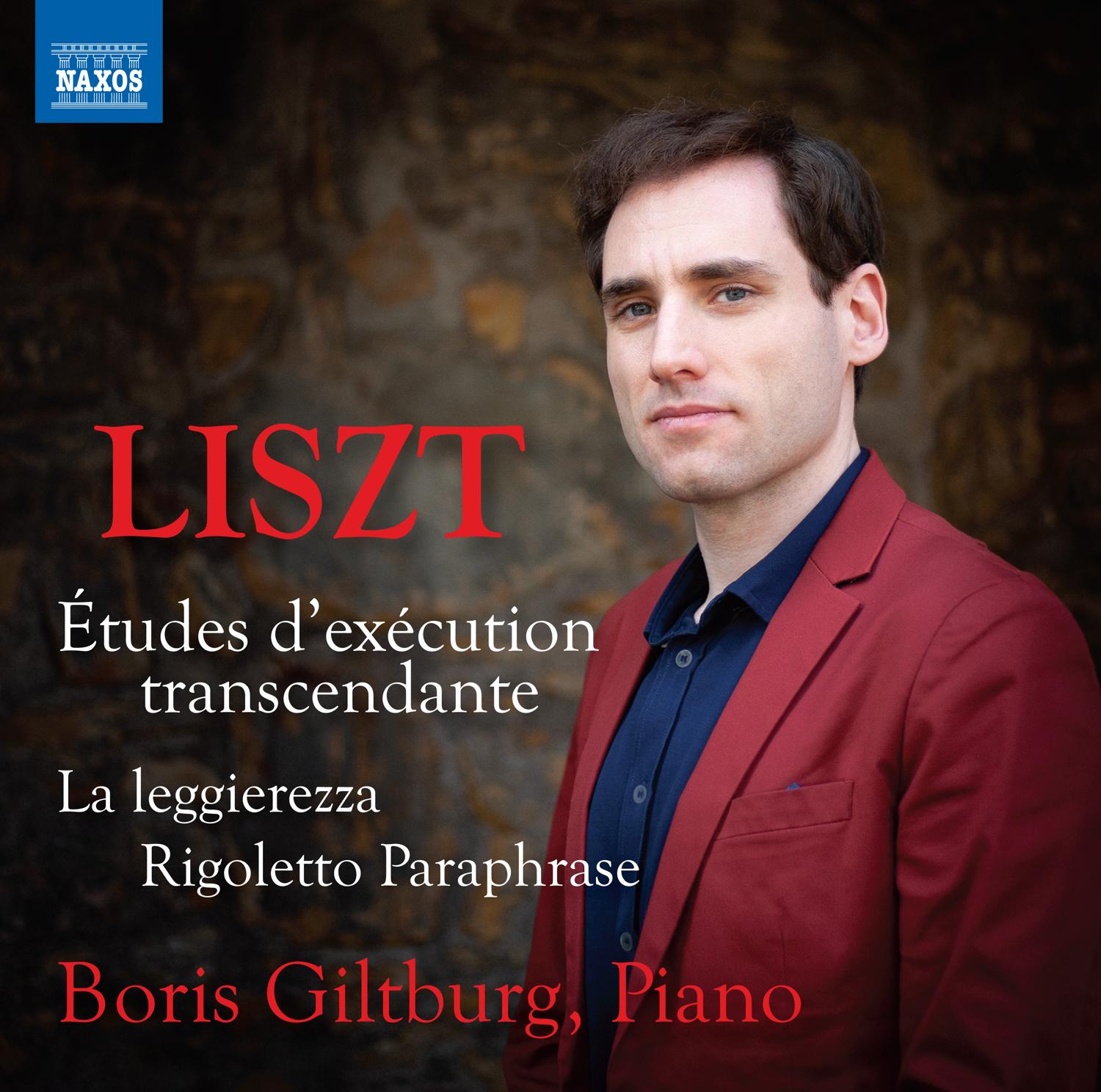
Liszt: 12 Études d'exécution transcendante, La Leggierezza, Rigoletto: Paraphrase de concert
Listen Now
About
Franz Liszt was one of the very first musical superstars, standing out from the ranks of 19th-century piano virtuosos. He is also the only one of them whose compositions continue to be widely performed to this day. Liszt’s ambitions were most likely triggered in 1832, when after hearing Niccolò Paganini at a concert, the 21-year-old determined to become as great a virtuoso on the piano as Paganini was on the violin. In this he succeeded brilliantly: his career as a touring pianist lasted only eight years (1839–47), but during that time his tours blazed all over Europe, leaving in their wake admiring, unbelieving audiences, swooning ladies, and broken pianos and hearts. (full sleeve notes)
Reviews
... a Liszt disc of the most compelling brilliance. It would be hard to imagine a more complete translation of virtuosity into poetry, the fiendish difficulties seized on as pure expressive bonus, so that one is aware of them as novel texture, never as wilfulness. Giltburg provides splendid liner notes, too.
The Sunday Times
... Pianist Boris Giltburg has already made impressive recordings of the Shostakovich and Rachmaninov piano concertos for Naxos. Now he set down the complete set of Liszt’s Transcendental Studies which impresses right from the introductory flourishes of the first of the set. There’s some dazzling technique on display; also, though, a fine sense of drama and musical narrative. As you’re about to hear in the extra Study that comes at the end of the recital ... “La Leggierezza”, lightness, the 2nd of Liszt’s Etudes de Concert, a lovely postlude to Boris Giltburg’s new recording of Liszt’s Transcendental Studies, with all the formidable technical challenges duly transcended and in the most musically satisfying way as well. Giltburg begins with Liszt’s Paraphrase on Verdi’s Rigoletto, which makes for an attractive opening to this well-recorded recital released yesterday on Naxos.
Bravura requires bravado, and Boris Giltburg, who has quietly become one of the world’s most in-demand virtuosos since winning the 2013 Queen Elizabeth Competition, seems to possess it in spades.
Not only an outstandingly accomplished pianist, in the technical sense, but also someone who interprets the great works with a rare degree of insight and sensitivity…Indispensable.
He possesses a staggeringly brilliant technique, and plays the work in Liszt's original and most fiendishly difficult version. The result is a spine-tingling performance that will place the disc among the 'legendary' piano recordings of our time.
Yorkshire Post
Giltburg mag worden opgenomen in het illustere rijtje Liszt-interpreten van de eerste orde. (Giltburg can be included in the illustrious list of Liszt interpreters of the first order.)
Giltburg hat die hohe Kunst tief verinnerlicht: Geht es doch darum, aus all dem nicht einfach möglichst viele gegensätzliche spieltechnische Herausforderungen zu schöpfen, sondern stattdessen den Zuhörer in tiefe Zustände von Versenkung mitzunehmen.(Instead of illustrating as many competing technical demands as possible, Giltburg draws the listener deep into the contemplative sphere, making great art something deeply personal.) (10/10 Künstlerische Qualität, Klangqualität, Gesamteindruck)
Im Lyrischen zaertlich und bewegend, im Virtuosen aufbrausend und leidenschaftlich
(Tender and moving in the lyrical passages, passionate and energising in the virtuosic ones.)
Gelingt es ihnen zudem, wie jetzt Boris Giltburg, mit dem virtuosen Vollzug zugleich die poetische Idee und Tiefe zu offenbaren, darf man sich zu den aktuell ganz Großen zählen.
(Those – like Boris Giltburg – who through their mastery of the technical challenges manage to express the deeper poetic ideas, can count themselves amongst the very greatest pianists of today.)
Giltburg vermag mit seiner zupackenden Art, der extremen dynamischen Ausdeutung sowie kühnen Rubati eine innere Dramatik, ein Feuer zu entwickeln, das aus den Etüden Tondichtungen macht…Die Kühnheit der Lisztschen Visionen, deren Modernität als fantastische, packende Studien, ihre transzendente Kraft kommen bei Giltburg optimal zum Ausdruck.
(With his thrilling artistry, extreme dynamics and bold rubato Giltburg develops an inner drama and fire which makes poetry of these studies… Giltburg expresses in the most convincing way the boldness of Liszt’s vision, the modernity of these fantasmagorical, thrilling studies, and their transcendental power.)
Mit einer atemberaubender Fingerfertigkeit lässt er uns die Schwierigkeiten der Etudes d’éxecution transcendante beinahe vergessen und stellt die Musikalität in den Vordergrund. Ein Hörvergnügen.
(With breathtaking virtuosity he allows us almost to forget the technical difficulties of the Transcendental Etudes, and puts the music first. A pleasure to listen to.)
Herausragend!
(Exceptional!)
NDR Kultur
Und so sind denn auch Giltburgs ‘Etudes’ über alles Technische und Virtuose hinaus sehr narrativ, klangmalerisch, sehr bildhaft nicht im Sinne von Malerei, sondern eher filmisch-dramatisch und auch poetisch. Es ist schon erstaunlich, was er alles an Farben und Formen aus seinem Fazioli-Flügel herausholt.
Boris Giltburg’s new Liszt release is fascinating. He plays the Etudes in a very narrative way, with a lot of drama and poetic feelings as well.